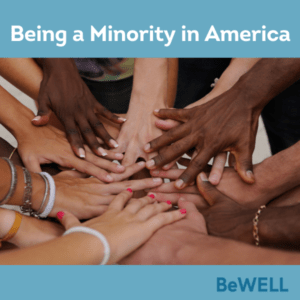Marriage Counseling & Couples Therapy for Same-Sex Couples.
Let’s be honest, relationships are hard. Trust, communication, romance, balancing work and home life, expectations, sex…it is a wonder that couples survive at all! There are plenty of factors that can strain a relationship and most couples can absolutely benefit from couples therapy. But what about couples therapy for same-sex couples or nontraditional relationships?
- Can they also benefit from seeking couples therapy?
- What are some reasons same sex or other nontraditional partnerships seek therapy and what should they look for in their therapist?
The short answer is of course they can! Every couple can improve their relationship through therapy. Same sex couples may not think therapists understand their relationships and this fear could be rooted in some history.
Homosexuality was considered a mental illness in the DSM up until the 1970s and queerness and gender identity started finding acceptance much more recently. Unfortunately, therapists were taught to see homosexuality as a disorder and to treat it as such.
Today most therapists have gotten past viewing LGBTQIA relationships as abnormal or taboo and are capable of offering therapy to the LGBTQIA community, but same sex couples should make sure they are working with an LGBTQIA Affirming therapist.
It is extremely important that same sex couples or nontraditional couples/partnerships seek therapy from LGBTQIA Affirming practices like BeWELL that openly accepts and recognizes the LGBTQIA identity and is able to treat the relationship with dignity and the unique support that it needs.
While all relationships can be hard, there are distinct problems that same sex or nontraditional couples face like homophobia, transphobia, and other social stigmas that need to be understood by a therapist.
All couples can benefit from therapy and a lot of the same problems exists in both same sex marriages and opposite sex couples. A BeWELL Therapist can openly discuss your relationship and this is the most important element in getting the help your relationship needs.
While a lot of the problems may be the same, there are a few key differences that are important for a therapist to understand and a same sex couple to recognize.
Work and Family
Some same sex couples may not be out as a couple to the people in their lives or one partner may not be fully out to their family, friends, or colleagues at their job. This is one of the most stressful situations for same sex couples to navigate and totally unique to them.
Straight couples don’t have the stress, stigma, or social and professional backlash that some same sex couples have and this can cause anxiety, pain, and tension within the relationship. Everything from fear of family functions, to fear of going out in public as a couple can come into play, causing anger, sadness, loneliness, and even resentment toward your partner. Therapy can help a couple who is experiencing this type of stress try to make sense of the coming out process and to navigate this difficult situation.
Family Planning
Family planning is something that all marriages have to face at some point, but the stressors of same sex couples are a bit different. How your partner feels about having their own biological children, for example, can lead to stress in a same sex marriage.
Adoption, surrogacy, and IVF can be costly, painful, and stressful to navigate. Same sex couples may not get as much family support as opposite sex couples, which can cause particular strain within the relationship, especially if they already have children, a unique problem that needs to be understood and recognized.
Roles in Relationship
The power dynamic of same sex couples is often different from opposite sex couples, and who in the relationship will take on specific roles within the family and home is another reason same sex couples may seek counseling.
The heteronormative idea that there is always a more feminine partner, who will take on the more “female” roles vs a more masculine partner who will take on the “male” roles has slowly begun to change. Finding a therapist that understands the unique dynamics of your specific relationship is key in helping you establish and maintain those roles.
Because there are so many different types of same sex couples, many of whom don’t necessarily fall under gender norms or stereotypes, these boundaries and roles may be difficult to maintain in the relationship. In traditional, opposite sex marriages, the power dynamic is established by heteronormative socialization, but the members of same sex marriages have to establish different power dynamics that are unique to them. While not always a cause of stress, it can be difficult to navigate.
What to Look for in a Therapist
Working with a therapist who understands non traditional lifestyles is also an important part of finding the right fit for same sex couples and other partnerships. For example same sex couples may not want to work with a therapist who has narrow views on marriage or sex.
Working with a therapist who understands the role that sex and non-monogamous sex plays in the relationship is a big part of the puzzle for non traditional partnerships. For example some lesbian couples tend to have less sex than gay male relationships or opposite sex relationships and an inexperienced LGBTQIA therapist may assume that having little to no genital sex is the root of relationship problems.
An inexperienced therapist or a therapist with a heteronormative perspective simply may not understand the complexity of that couple’s intimacy, and may actually cause more harm than good by putting pressure on that couple to have more sex. On the flip side, some gay married men may have a non-monogamous relationship and a therapist who wasn’t well versed in nontraditional marriage, might blame the non-monogamy itself as the cause of relationship tension, rather than communication, boundaries, or the basic power dynamic within the relationship.
Ultimately each couple that goes to therapy is different and while some struggles are universal, they all have unique needs and face problems that are specific to only them. Same sex couples, or other non traditional partnerships should be able to speak openly about their lifestyle without the fear of being misunderstood or judged.
They should have a therapist who understands how their relationship may differ from opposite sex couples and feel seen during their sessions, so that they can become stronger as a couple. If you are looking for a couples therapist, make sure to ask questions! Remember that it won’t work if you aren’t honest and working with someone who respects and understands you and your specific needs.
BeWELL Therapists are LGBTQIA Affirming and acknowledge that n o matter who you love or are committed to, you have the right to Be.Well.
Now accepting accepting couples in our Midtown NYC and Hoboken NJ Psychotherapy offices.




